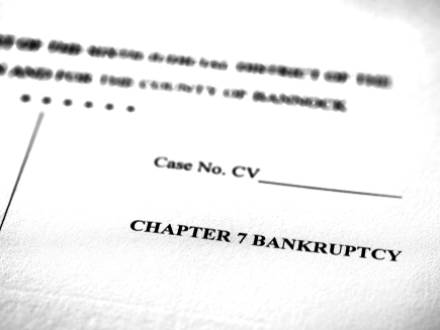How Does Chapter 7 Bankruptcy Work?
 Financial distress can be overwhelming, but there are legal solutions available. Chapter 7 bankruptcy offers a path to eliminating unsecured debts and regaining financial stability. A Texas lawyer can help you understand what Chapter 7 is all about and how it may benefit you.
Financial distress can be overwhelming, but there are legal solutions available. Chapter 7 bankruptcy offers a path to eliminating unsecured debts and regaining financial stability. A Texas lawyer can help you understand what Chapter 7 is all about and how it may benefit you.
What You Should Know About Chapter 7 Bankruptcy
At its core, Chapter 7 bankruptcy is designed to discharge most unsecured debts, giving individuals and businesses a fresh financial start. This type of bankruptcy eliminates the legal obligation to repay discharged debts. However, it is important to note that not all debts can be wiped clean through this process. Debts typically eligible for discharge include:
-
Credit card balances
-
Medical bills
-
Personal loans
-
Past-due utility bills
-
Certain business debts
On the other hand, some debts generally remain, such as most student loans, child support, alimony, recent tax debts, and court-ordered fines or penalties.
The Chapter 7 Bankruptcy Process
Chapter 7 bankruptcy begins with mandatory credit counseling from an approved provider. Following this, a bankruptcy petition and related documents are filed with the court, typically with the assistance of an attorney.
An automatic stay takes effect upon filing, halting most creditor collection efforts. This provides immediate relief from financial pressure. The court then appoints a bankruptcy trustee to oversee the case. This trustee conducts a meeting of creditors, also known as a 341 meeting, where questions about the financial situation are answered under oath.
A vital aspect of the process is evaluating assets. The trustee determines if there are any non-exempt assets that could be sold to repay creditors. Texas bankruptcy laws, however, provide substantial exemptions that often allow the retention of essential property. This can include a primary residence, personal items up to certain value limits, retirement accounts, and tools necessary for a profession.
If there are no objections and all requirements are met, the court grants a discharge of eligible debts. This typically occurs about three to four months after filing, marking the conclusion of the Chapter 7 bankruptcy process.
Important Considerations For Chapter 7 Bankruptcy
While Chapter 7 bankruptcy can provide significant debt relief, it is a decision that requires careful consideration. It will have a long-term impact on credit scores and may affect the ability to obtain credit in the immediate future. However, for many individuals, the benefits of debt relief outweigh these temporary challenges.
Reach Out to a Kerrville, TX Bankruptcy Lawyer
Working with a New Braunfels, TX bankruptcy attorney who understands legal jargon is helpful. Chapter 7 bankruptcy is not a one-size-fits-all solution. Each financial situation is unique and deserves personalized attention and analysis. What works for one person may not be the best approach for another. Call Law Offices of Chance M. McGhee at 210-342-3400 for a free consultation and see if Chapter 7 is ideal for you.






